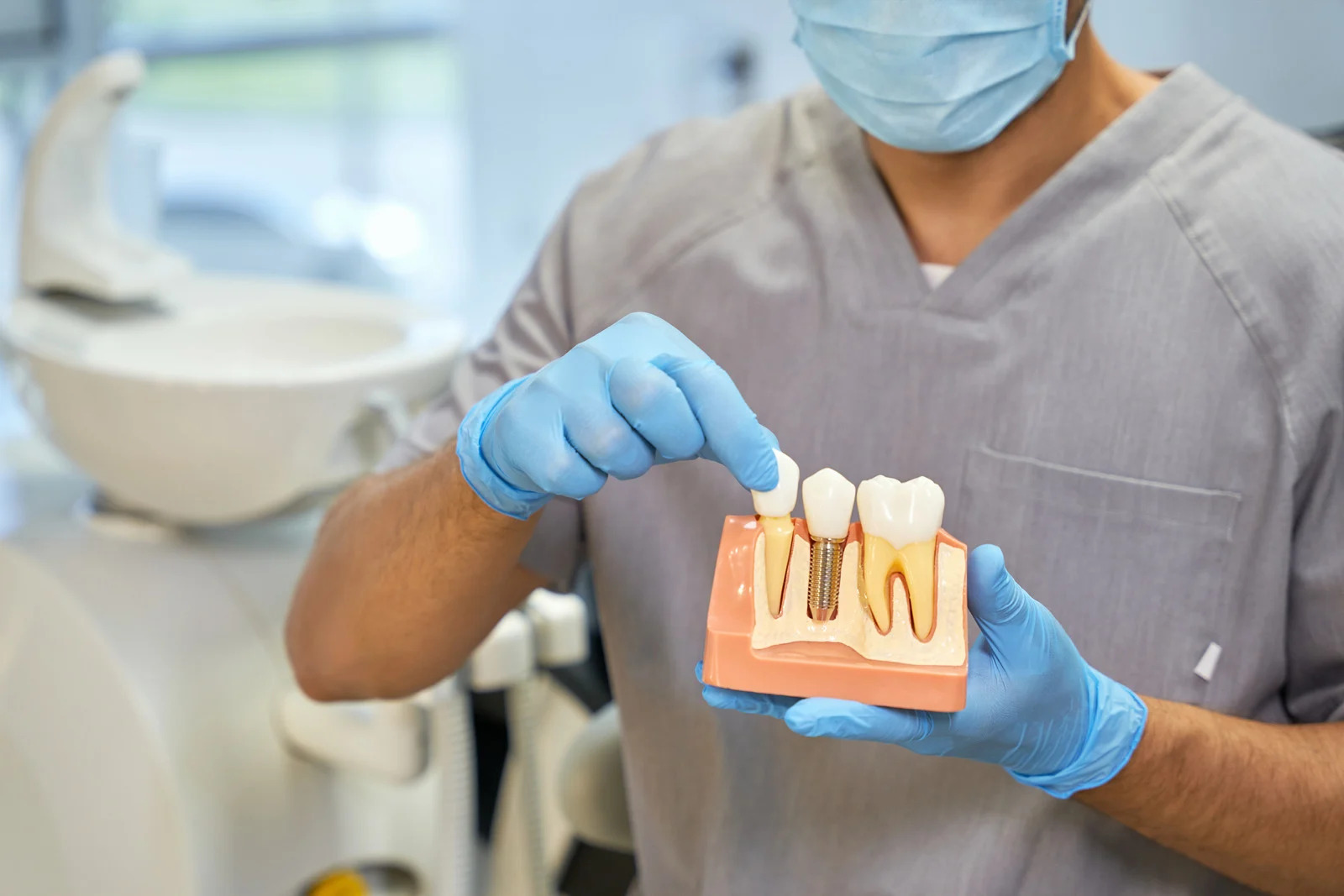Dental implants West Houston are made of metal and are surgically inserted beneath the gum line into the jawbone. They can then be mounted on by your dentist to serve as replacement teeth.
How Do Dental Implants Function?
Implants support false teeth securely because they bond to your jawbone. When attached to implants, dentures and bridges won’t slip or shift in your mouth, which is a crucial advantage when speaking and eating. The dentures and bridges, as well as individual crowns affixed over implants, feel more natural than traditional bridges or dentures thanks to this snug fit.
Due to painful places, inadequate ridges, or choking, some patients find that traditional bridges and dentures are neither comfortable nor even practical. Additionally, the teeth on each side of the gap caused by the lost tooth must be fitted with standard bridges. One benefit of implants is that your new replacement tooth or teeth don’t need to be secured in place by grinding down or preparing the teeth next to them.
You need to have strong bone to support the implant as well as healthy gums in order to obtain implants. You must also promise to maintain the health of these structures. The long-term success of dental implants depends on meticulous oral care and frequent dental checkups.
There are two types of Dental implants West Houston that the American Dental Association deems to be secure. As follows:
Endosteal implants are put by surgery right into the jawbone. After the gum tissue around the implant has recovered, a second procedure is required to attach a post to the initial implant. The final step involves attaching a prosthetic tooth (or teeth) to the post, either singly or in a group as part of a bridge or denture.
Subperiosteal implants: These have a metal framework that is attached to the jawbone beneath the gum line. The frame is fixed to the jawbone while the gums recover. Through the gums are posts that are connected to the frame. The posts are subsequently attached with fake teeth, same like with endosteal implants.
Dental implants’ benefits
A dental implant can significantly improve a patient’s self-esteem because it functions and appears like a natural tooth. Many people who were reluctant to smile because of the gap left by a missing tooth now feel completely at ease thanks to dental implants. Aside from improving appearance, a dental implant also facilitates eating and speaking since it is held in place by a titanium post that is anchored directly to the jaw. As a result, unlike a denture, an implant does not come free. Since they do not need to be secured to adjacent teeth like bridges, dental implants also enhance the overall health of the mouth.
Success rates for dental implants
Depending on where the missing teeth are, dental implants may or may not be successful, however the American Association of Oral and Maxillofacial Surgeons (AAOMS) reports that the average success rate is around 95%. Some people, such as those who smoke or have diabetes, may not be a good candidate for the treatment because the implant penetrates the jaw bone and gum. If dental implants are the best option for you, your dentist can make that determination.
Maintenance of a Dental Implant
The dentures Houston must be successful for good dental hygiene practises to be followed. Regular dental appointments, flossing, and brushing of the teeth are all necessary. It should be mentioned that the majority of insurance companies do not pay for dental implants, which can cost anywhere from $1,000 to $2,000 per tooth plus an additional fee for the crown that is affixed to the implant. Consult your dentist first if you’re missing a tooth and think a dental implant would be the best option for you.

